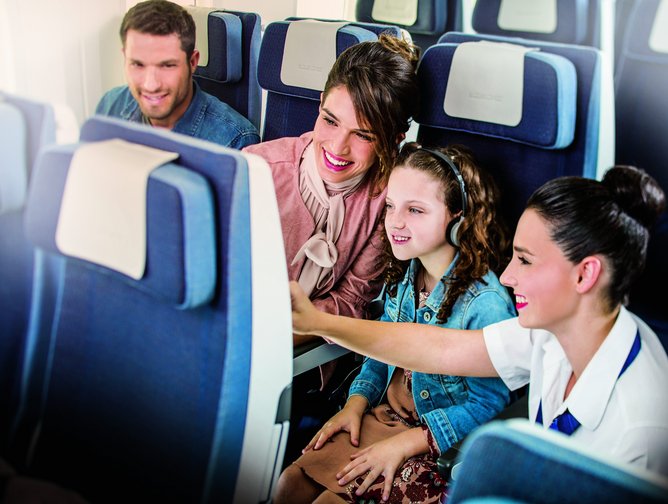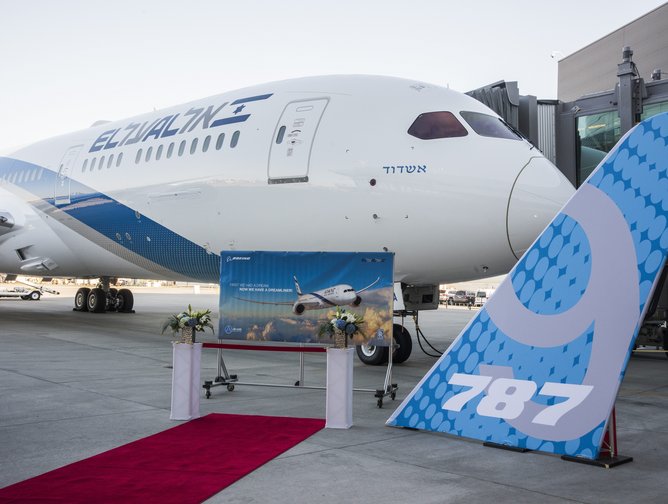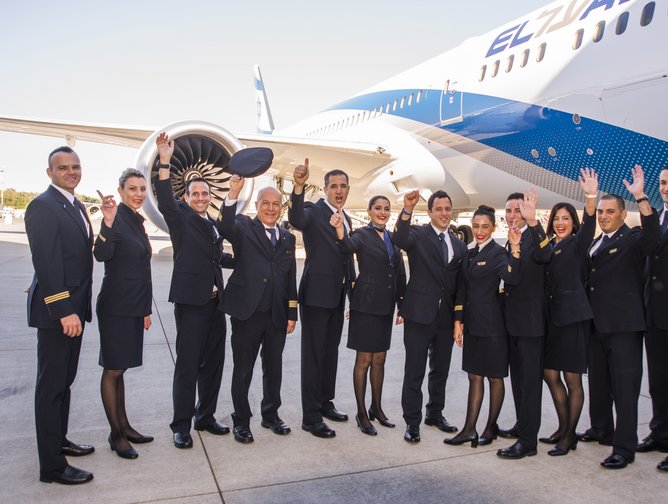Shahar Markovitch on El Al Israel Airlines ‘digital transformation into a ‘Smart Airline’
EL AL is Israel's national airline boasting close to 6mn customers a year and US$2bn in annual revenue. Before joining EL AL as the airline's Chief Digital and Information Officer, Shahar Markovitch was the Chief Digital Officer of Bank Hapoalim, one of Israel's largest banks. Prior to that he was a partner of the consulting firm McKinsey & Company, and as such brings experience of shaping the digital strategy of organisations all over the world. A little over a year ago, Markovitch brought this expertise to EL AL, to assist in the innovation of a new division that combines IT and digital to drive the technological transformation of the company.
Markovitch begins by sharing that there are two key disruptions in the airline industry today. The first is "the digital airline, which is a combination of both new business models like the low-cost carrier model with new open sky regulation” and secondly, he adds, "the customer is becoming more digital" with access to dozens of options for booking their flight. Yet Markovitch also says that there is a new revolution hurtling towards the airline industry: what he calls the smart airline revolution, major disruption fueled by a combination of data and machine learning. A key component of a ‘smart airline’ is the ability to leverage AI, machine learning and analytics to deliver better, more personalised customer experience, drive revenues and profitability, and improve operational efficiency. This revolution can transform customer loyalty, create new relationships and build upon existing ones. "According to research, due to the massive complexity of the business, airlines are one of the industries to benefit most from AI and machine learning technologies,” he said.
"When we built our strategy for EL AL's technology and digital transformation, we realised that we need to win in these two fronts at the same time. On the one hand, we had to fully transition to a ‘digital airline’ to remain competitive, on the other hand, we must build capabilities for becoming a smart airline in order to remain ahead." EL AL also realised that one of its main differentiators in the technology space is the fact that it is the airline of the ‘startup nation,’ being immersed in one of the most vibrant tech and startup ecosystems in the world. This gave birth to its vision of becoming the smart airline of the startup nation.
To achieve this vision, the company defined a transformation plan with three main pillars:
- Technology roadmap for the ‘Smart Airline’
The first pillar is all about defining a clear roadmap on how technology as a whole will transform the company. "This is around what our business should look like in the future across all areas of operation, from front to back – anything from having leading digital websites all the way through having automated back-end operations to dynamic and smart routing to giving our employees better smart digital tools,” says Markovitch. For example, one of the areas where EL AL sees huge potential for leveraging technology to transform operations is the maintenance of its planes. As components to planes are expensive, aircrafts are regularly maintained. Every few months each plane is taken apart and reassembled again to inspect all of its components. To manage this, Markovitch explains, EL AL has implemented a system designed by Swiss Aviation called AMOS, which digitised the end-to-end maintenance process. EL AL is also extending this system to create a fully paperless maintenance process where all of the ground technicians will use tablets for maintenance activities.
Another example is end to end management of finances and process management. "We are working with SAP to digitise, automate and create the technology backbone for our entire finance and procurement operations, including some of our warehouse management activities." This allows a greater streamlining of operations, saving time and money
- The ‘value multipliers’ of the digital age
The second key pillar for the airline is about bringing to bear the value multipliers of the digital age: Customer Experience Design, Digital Platforms, and Data and Analytics. “We start with customer experience, and how our plan fits with the end to end customer journey,” Markovitch explains. “It’s about how we leverage methodologies like design thinking to drive the actual value proposition that we offer our customers as part of our overall transformation roadmap." Then EL AL considers its digital platforms, which includes upgrading not only its digital channels but also transforming the way EL AL thinks and develops these channels, moving from “a project view of the world to a product view of the world” with the aspiration of operating like a "native digital player”. The last value multiplier’ is leveraging data and advanced analytics, which he says is essentially managing data as an asset, embedding data-driven tools into every decision the business makes, and using insights to increase profitability.
These value multipliers work together to deliver innovative digital products to EL AL's customers. For example, customer research showed that one of the pains of customers traveling abroad is the cost of a taxi to the airport. As a response EL AL developed an innovative digital platform call Taxi Pool. This is one of the first services of its kind, designed to facilitate sharing taxis for customers who travel from the airport to the same hotel or hotels in close proximity. The system connects people who are taking the same flight, matching up groups who can pool a taxi to save money. This service is provided by EL AL to customers all over the world, using no matter what airlie they are using.
One example is a hybrid chatbot EL AL launched to assist customers, which can be accessed through WhatsApp or Facebook Messenger. The hybrid bot mixes state of the art AI with human support. Should the bot be unable to provide a solution to the customer, there is a seamless connection to a member of the support team, without the customer ever needing to be aware of this shift. Another example of a digital platform that combines data and analytics with advanced data analytics is "Bid to Fly" (Bid2Fly). This solution uses data analytics to analyse low sale flights and combine that with the buying patterns of a customer. If a customer is unlikely to buy a flight, they have the opportunity to save up to 50% on a flight by bidding on it at auction that may not have sold at all otherwise.
- Transforming the factory
Markovitch highlights that the third pillar of the company’s digital transformation is upgrading its technology factory. This focuses on transforming the entire technology stack to enable faster time to market and greater flexibility while ensuring resilience and security in everything EL AL does. Part of this includes moving towards a more agile way of working, changing the software architecture and infrastructure. For example, "How do we enable better services for our customers through API and open systems? What value can we bring by accelerating our move to the cloud, and how do we automate our day to day operations?"
When faced with the need to process large amounts of data thats its Adobe marketing automation solution, EL AL has implemented a Big Data solution based on Cloudera. "The queues, the various dates, and the analytics we run on the Cloudera infrastructure are to decide what kind of marketing message we should provide, and how to better appeal to each customer," he explains.
As EL AL looks to the future, Markovitch says that there is already a lot in the pipeline. After a recent upgrade to the mobile app, the company has launched a new website, which will improve upon customer engagement and allow customers to access and better understand their frequent traveller miles. Additionally, the airline is acquiring new planes including the Dreamliner 787 which will be equipped with Wi-Fi. "Overall, we're going through quite a lot of changes and technology is a vital part of these changes." With a clear path set, it is without a doubt that EL AL will continue to strengthen its position as the ‘smart airline’ of the startup nation.




